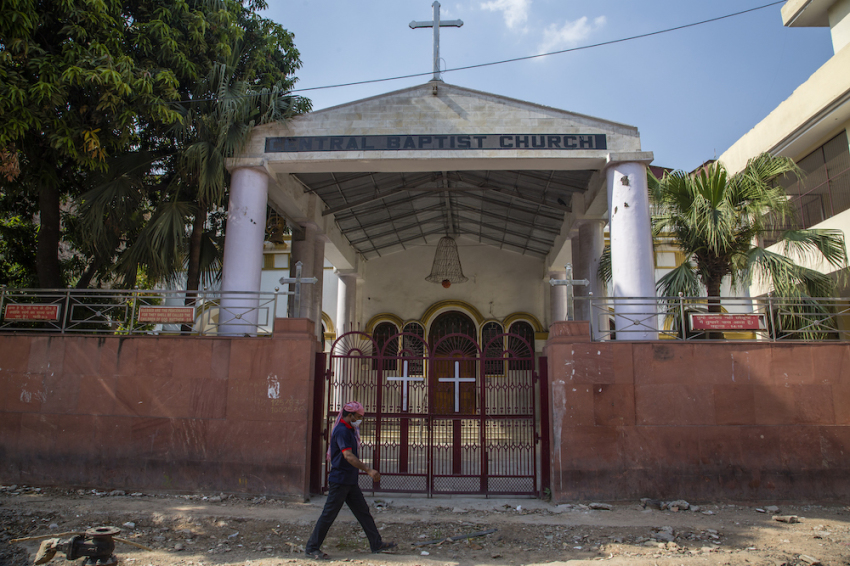Christians in India arrested during Maundy Thursday service

Police in northern India’s Uttar Pradesh state arrested dozens of Christians celebrating Maundy Thursday in their Evangelical church after a mob of radical Hindu nationalists surrounded the building and locked the doors in retaliation for the alleged forced conversions of Hindus to Christianity.
At least 36 Christians were arrested from a church belonging to the Evangelical Church of India denomination in Hariharganj area of Fatehpur City based on a police complaint under Uttar Pradesh state’s “anti-conversion” law filed by a member of the Hindu nationalist group Vishwa Hindu Parishad (World Hindu Council), the U.S.-based persecution watchdog International Christians Concern reported.
“This is a perfect portrayal of Jesus’ suffering 2000 years ago. We know Jesus endured, and we will,” ICC quoted a member of the congregation as saying. Maundy Thursday is an occasion when Christians gather to celebrate Jesus’ final Passover with His disciples, His commandment to love one another, and His service to others through the washing of feet.
According to India’s PTI news agency, the arrests were made over “allegedly illegal religious conversions of 90 people in the last 40 days in the [Fatehpur] district.”
“Sadly, Uttar Pradesh is one of the harshest states in India regarding religious freedom violations,” ICC President Jeff King said. “When the Indian authorities validate the actions of a violent mob by jailing the mob’s victims, they are sending a message that criminal activity is approved by the authorities whenever it targets religious minorities. This type of legal posture only worsens the religious freedom climate and further increases the vulnerability of Christians to more violence.
The VHP, the group that filed the complaint, is known for attacking minorities, including Christians.
“Anti-conversion laws are inherently subjective, and perception-based, therefore completely restricting the rights of Christians to public expressions of their faith,” King added.
While Christians make up only 2.3% of India’s population and Hindus comprise about 80%, the country’s anti-conversion laws presume that Christians “force” or give financial benefits to Hindus to convert them to Christianity.
Some of these laws have been in place for decades in some states. Radical Hindu nationalist groups frequently use the laws to make false charges against Christians and launch attacks on them under the pretext of an alleged forced conversion.
For India’s Christians, 2021 was the “most violent year” in the country’s history, according to a report by the United Christian Forum, which recorded at least 486 violent incidents of Christian persecution in the year.
The UCF attributed the high incidence of Christian persecution to “impunity,” due to which “such mobs criminally threaten, physically assault people in prayer, before handing them over to the police on allegations of forcible conversions.”
Police registered formal complaints in only 34 of the 486 cases, according to the UCF.
“Often communal sloganeering is witnessed outside police stations, where the police stand as mute spectators,” the UCF report states.
“Hindu extremists believe that all Indians should be Hindus and that the country should be rid of Christianity and Islam,” an Open Doors fact sheet explains. “They use extensive violence to achieve this goal, particularly targeting Christians from a Hindu background. Christians are accused of following a ‘foreign faith’ and blamed for bad luck in their communities.”



























